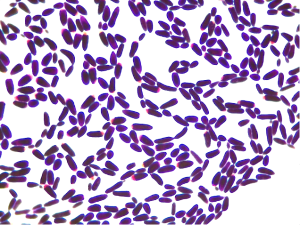[Biology] Hands-On Microbiology Lab Manual
Description of the Resource:
Hands-On Microbiology is an OER laboratory manual for undergraduate microbiology classrooms. This manual lays a traditional foundation of scientific inquiry while promoting equity in science. It is available in digital form on Canvas or can be downloaded as Microsoft Word documents.
How This Resource Integrates Diversity, Equity, and Inclusion Principles and Practices:
This microbiology lab manual integrates diversity, equity, and inclusion principles and practices in several meaningful ways. It features spotlights on scientists from diverse backgrounds, such as Dr. Pratibha L. Gai, Ms. Fanny Hesse, Dr. Clarissa Nobile, Dr. Jane Hinton, Dr. Kizzmekia Corbett, Ms. Tu Youyou, Dr. Jose Lopez, Dr. Emmanuelle Charpentier, Dr. Jennifer Doudna, and Dr. Jo Handelsman. This inclusion of diverse role models highlights contributions from women and individuals of different cultural and racial backgrounds, promoting a sense of inclusivity and representation in the field of microbiology. When students see themselves reflected in the material, they are more likely to be engaged and motivated, which can inspire them to pursue careers in STEM fields. The manual also covers a broad range of topics, including environmental microbiology, immunology, and medical microbiology, demonstrating the relevance of microbiology across various fields and applications. This breadth can engage students from diverse interests and backgrounds, showing them the multifaceted nature of the discipline.
The lab manual also addresses cultural and ethical considerations within microbiology, fostering critical thinking and cultural sensitivity. Topics like infectious disease bioethics and simulated epidemics demonstrate awareness of the societal impact of microbiology. The use of videos, tours, and project-based learning, such as the Skin Microbiome Project and Tiny Earth Research Project, enhances accessibility and engagement for students with different learning styles. These hands-on, inclusive learning experiences encourage students to explore diverse research areas and contribute to scientific knowledge.

